Coromandel Giants
Kauri on the Peninsula
The State of Kauri on the Coromandel Peninsula
There are approximately 410 mainly overmature trees in an area of 101 hectares. Average bole height 12.2 metres, average girth 4.98 metres, average volume 20.4 cubic metres
In the heyday of kauri logging an estimated 236,000m3 per annum was milled. This equals a volume equivalent to 28 Manaia Sanctuaries annually, over 2,800ha.
Waiau Falls Scenic Reserve
Located on the 309 Road, this has several dozen large mature kauri trees.
Waiomu Valley
More than 200 trees, with an estimated average volume of 10m3. The stand is in excellent condition with very good crowns and some light bleed marks (v pattern) completely healed over.
The girth of the largest tree was 7.518 metres in 1970 and remeasured at 7.696 metres in 1993. So over 23 years the girth increased in diameter terms by 5.3 centimetres.
Third Branch Tairua River
Over 300 dying and decaying over-mature trees with an estimated average tree volume of 14.1m3.
Coromandel Range Flanks & Hinterland
There is a scattering of mature kauri trees on the Range flanks and hinterland outside the above areas guestimated at 500+ in number.
There are also quite substantial areas of seedlings, saplings and poles principally in the Kennedy Bay, Otama and Whenuakite areas, with scatterings elsewhere
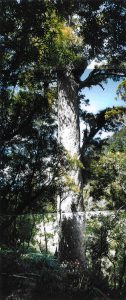 TE HUE KAURI
TE HUE KAURISited in the true right branch of Te Hue Stream Catchment, Coromandel Forest Park, at approx. Grid Reference T12 509 334.
About 2 hours return walk from the park boundary along an old pack trail with some bush crashing near the end. Private property to be crossed in the Te Hue Valley which is accessed via Te Hue Valley Road connecting with the Maratoto Valley Road.
Currently ranked as # 3 on the Coromandel Peninsula.
Measurements :
Girth @ 1.4 meters above ground 11.02 meters
Clean bole height 9.75 meters
Merchantable Bole Height 20.00 meters
Merchantable Volume 115.483 cu. Meters
Measured and photographed 22.2.1994
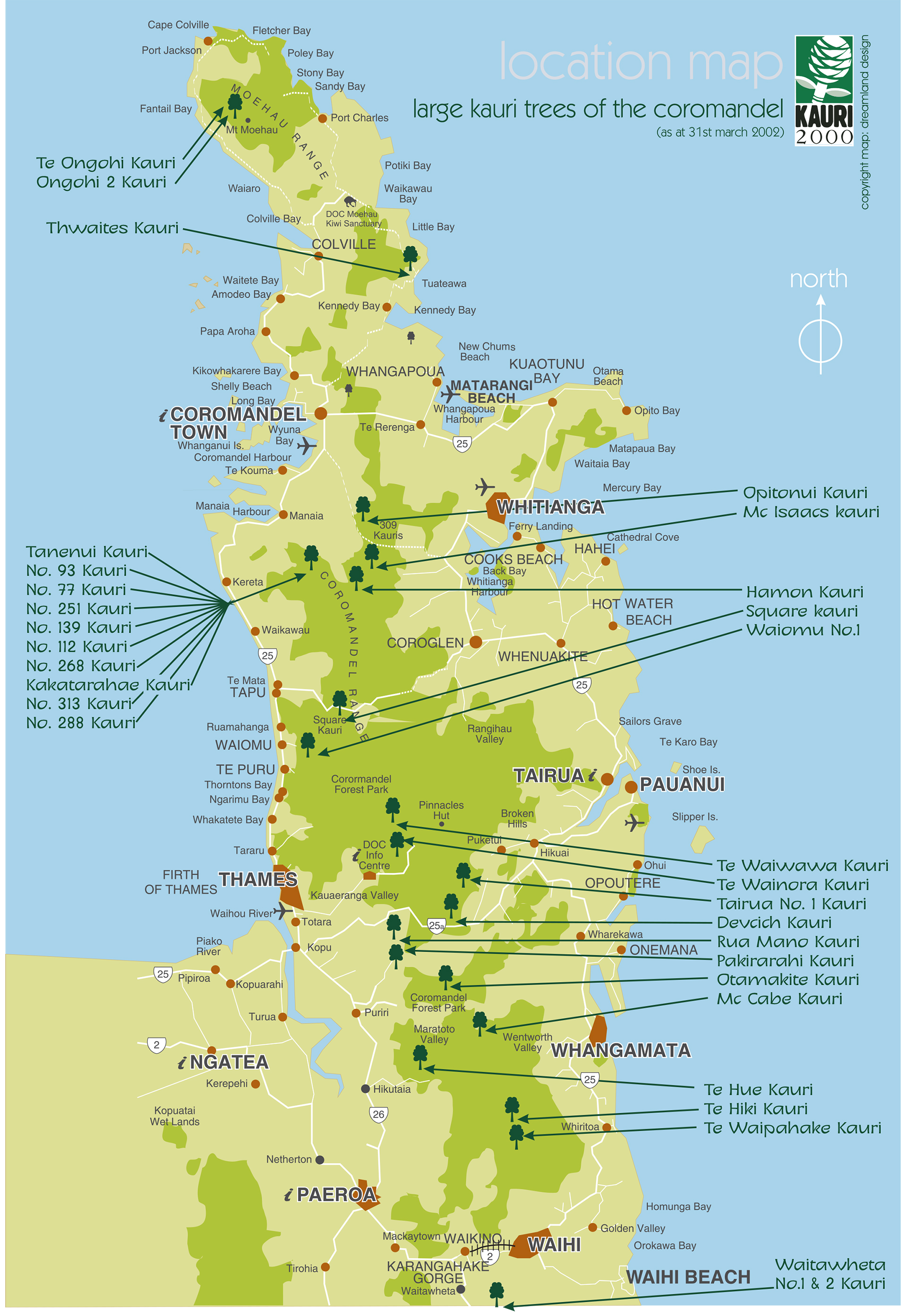
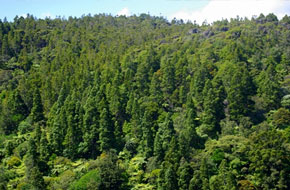
Kauri Distribution
The kauri grows in the subtropical northern part of the North Island, with a natural range as far as latitude 38 degrees south, roughly on a line joining Tauranga and Kawhia. However kauri are quite hardy and will grow as far south as Stewart Island (47 degrees...
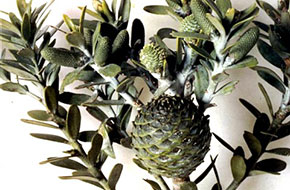
Foliage
Kauri male and female cones Kauri leaves have no petioles and are arranged alternately. They are thick and leathery with parallel veins and are dull olive-green colour. Juvenile leaves are 5-10 x 0.5-1.2cm; Adult leaves are 2.0-3.5 cm long. Most leaves remain on the...
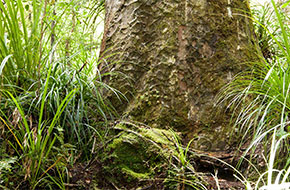
Kauri Growth
Trees normally reach a height of 30m -- occasionally 60m -- with a normal trunk diameter of three metres, sometimes reaching seven metres. As a young tree (known as a ricker) the kauri has a narrow, conical shape with branches up the length of the trunk. As the tree...
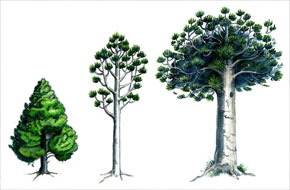
Botanical Details
The Kauri, Agathis australis, is New Zealand's largest and most famous native tree, on account of its size and age. It is regarded worldwide as a truly noble tree. Ancestors of the kauri first appeared in the Jurassic Period 190-135 million years ago. Kauri - podocarp...
